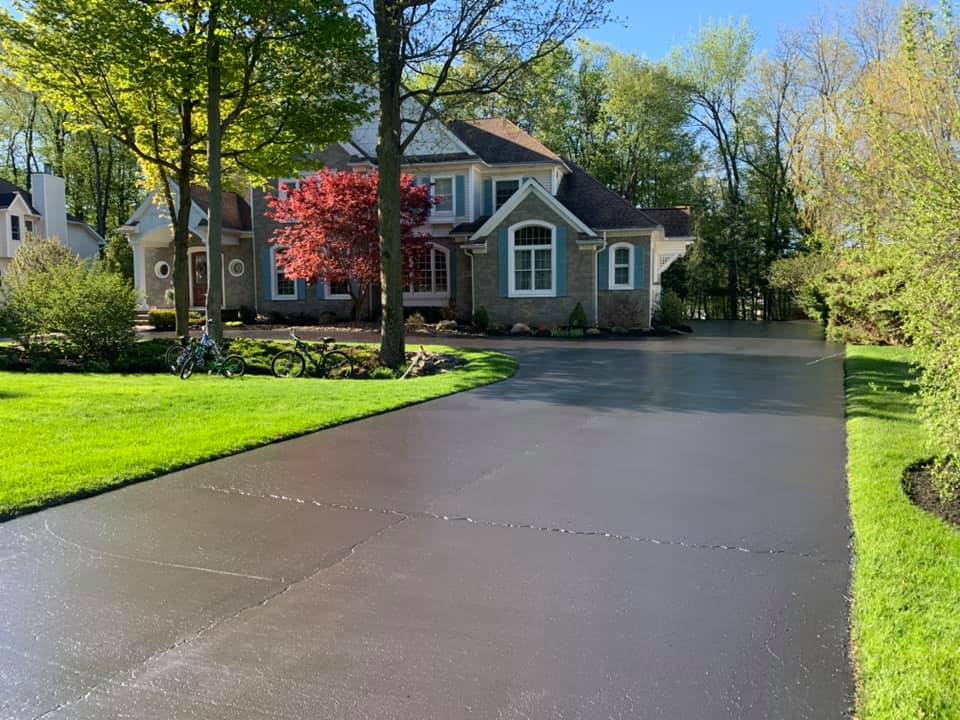Boost Durability with Cold Mix Asphalt: Professional Sealing Solutions
Boost Durability with Cold Mix Asphalt: Professional Sealing Solutions
Blog Article
Cold Mix Asphalt Vs. Hot Mix Asphalt: Which Is Right for You?

Make-up Distinctions
Cold mix and hot mix asphalts differ substantially in their make-up, with distinctive features that impact their performance and applications. Cold mix asphalt is generated by emulsifying the asphalt binder with water and an emulsifying agent prior to blending it with accumulation. This approach permits the asphalt to be workable at reduced temperature levels, making it optimal for temporary repairs and for usage in chillier climate conditions. Hot mix asphalt, on the various other hand, is made at high temperatures, commonly in between 300-350 ° F, which helps to achieve better compaction and a more long lasting last product. The hot mix asphalt production process includes warming the aggregate and asphalt binder independently prior to combining them at the asphalt plant.
In addition, cold mix asphalt tends to be less thick and extra adaptable than warm mix asphalt. This adaptability makes it far better fit for areas with higher levels of movement, such as driveways or roadways with rush hour. On the other hand, hot mix asphalt is known for its high sturdiness and resistance to rutting and splitting, making it a favored choice for freeways and high-traffic roadways where durability is important.
Installation Process Differences
The process of setting up cool mix and hot mix asphalt displays notable variations in their demands and treatments. In comparison, hot mix asphalt requires a much more intricate installation process. Due to the home heating needs, hot mix asphalt setups are commonly carried out by experts with specific equipment, guaranteeing a much more irreversible and structurally sound result.
Sturdiness and Durability Aspects
When considering asphalt choices, longevity and durability are crucial aspects to evaluate for enduring sidewalk performance. Warm mix asphalt (HMA) is recognized for its exceptional longevity and longevity.
In terms of long life, HMA generally check this outperforms CMA because of its remarkable stamina and resistance residential properties. HMA sidewalks have a longer life span, requiring much less regular repairs and maintenance, which can equate to cost savings in the long run. Furthermore, HMA sidewalks are extra quickly adjustable to fulfill certain project demands, even more enhancing their sturdiness.
Expense Factors To Consider
Considering the financial implications is an essential element when assessing the choice between warm mix asphalt (HMA) and cold mix asphalt (CMA) for pavement jobs. While the preliminary expense of hot mix asphalt is commonly higher than that of chilly mix asphalt, HMA often supplies an extra cost-effective remedy in the lengthy run due to its premium durability and durability.
Along with material expenses, it's vital to consider the expenses related to installation and upkeep when contrasting HMA and CMA. HMA typically needs specific equipment and skilled labor for correct installation, which can impact overall job prices. Conversely, CMA is simpler to deal with and can often be applied making use of simpler strategies, possibly decreasing installment costs. Inevitably, the decision in between HMA and CMA ought to consider not just the first price however likewise the lasting content monetary effects to figure out one of the most economical option for the details pavement job.
Environmental Effect Comparison
Comparison of the ecological influences in between hot mix asphalt (HMA) and cool mix asphalt (CMA) reveals unique distinctions in sustainability techniques. HMA production needs high temperature levels, leading to boosted power intake and greenhouse gas emissions.
Furthermore, the usage of CMA commonly includes recycling existing asphalt pavement, advertising source conservation and lowering the quantity of waste sent to landfills. By opting for CMA over HMA, roadway construction tasks can contribute favorably to environmental conservation initiatives.
Verdict
In final thought, the option between chilly mix asphalt (CMA) and warm mix asphalt (HMA) relies on different aspects such as make-up, setup procedure, sturdiness, long life, cost, and environmental impact. angle parking. While CMA provides a economical and fast service for minor fixings, HMA guarantees superior durability and read here longevity for hefty traffic locations. Think about these elements carefully to determine which kind of asphalt is the best option for your paving needs

Taking into consideration the economic implications is a critical element when examining the selection between hot mix asphalt (HMA) and cold mix asphalt (CMA) for pavement tasks. While the initial price of warm mix asphalt is typically higher than that of cold mix asphalt, HMA frequently gives an extra cost-effective option in the long run due to its premium resilience and long life. angle parking.Contrast of the ecological impacts between warm mix asphalt (HMA) and cool mix asphalt (CMA) exposes unique differences in sustainability methods.In verdict, the option in between cold mix asphalt (CMA) and hot mix asphalt (HMA) depends on different variables such as make-up, setup process, longevity, longevity, price, and environmental influence
Report this page